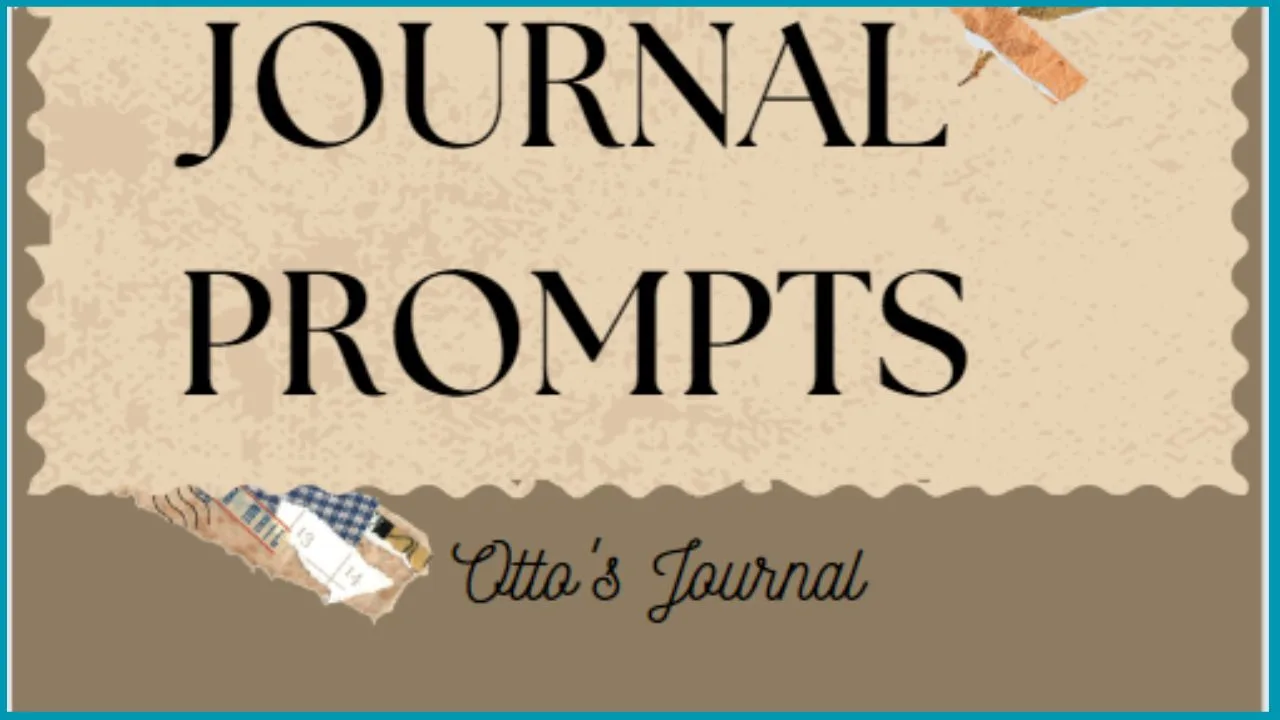Coping with depression can be a difficult and frustrating journey. Journal writing is a great way to record your thoughts, feelings, and experiences, it can also be an important tool in helping you work through your depression. Here are 101 journal prompts to get you started on the path to emotional wellness. These easy-to-use journal prompts for depression are designed to get your creative juices flowing and give you ideas for how to deal with depression in positive ways.
What is Journaling for Depression?
Journaling for depression is the act of writing down thoughts and feelings related to depression. It can help you gain perspective, identify triggers, release emotions, and recognize patterns that may be affecting your mental health.
Journaling can also provide a sense of accomplishment and give you a tangible way to keep track of your progress as you work through your depression.
101 Journal Prompts for Depression
1. What is one way I can practice self-care today?
2. How am I feeling today and why?
3. When do I feel most depressed, and why?
4. What are some positive things that have happened to me recently?
5. What is something that brings me joy or makes me smile?
6. What can I do to reduce stress in my life?
7. Who are the people who support and love me unconditionally?
8. What activities make me feel most energized and alive?
9. How has depression impacted the way I see myself?
10. What would it take for me to forgive myself for past mistakes or wrongdoings?
11. What am I grateful for today?
12. What is one area of my life that I’d like to improve?
13. How can I be more compassionate toward myself and others?
14. How do I want to define success in my life?
15. What are some healthy ways to cope with difficult emotions?
16. What are my biggest strengths and how can I use them to help me fight depression?
17. How can I be kinder to myself?
18. What lessons have I learned from past difficult experiences?
19. What little things make me happy and how can I incorporate more of them into my life?
20. When do I feel most content and why?
21. What are the small steps I can take today to become healthier and happier?
22. How can I better manage my expectations of myself?
23. When do I procrastinate, and how can I overcome this tendency?
24. What is one thing that makes me unique and sets me apart from others?
25. What are the benefits of taking a break and reflecting on my life?
26. How can I practice self-acceptance despite my flaws and imperfections?
27. What do I need to let go of in order to make space for new possibilities?
28. What is something that I have accomplished recently that I’m proud of?
29. How can I better honor my values and beliefs in my daily life?
30. What is one positive habit that I could start doing today to improve my mental health?
31. How has depression affected my relationships with other people?
32. What are the things that bring me peace when I am feeling overwhelmed?
33. What are the small changes I can make in my life that will lead to big results?
34. How can I stay focused on achieving my goals despite feeling discouraged or unmotivated?
35. What would it take for me to find joy and meaning in everyday life?
36. What is one thing that I am afraid to do, and why?
37. What can I do to make my home environment more peaceful and calming?
38. How can I be more mindful of my thoughts and feelings throughout the day?
39. How have I changed since experiencing depression symptoms?
40. What are some healthy strategies for managing stress and anxiety?
41. What can I do today to relieve tension and relax?
42. What would it take for me to get out of my comfort zone and try something new?
43. How have I grown or changed as a result of my depression?
44. What has been the most challenging part of dealing with depression so far, and how can I overcome it?
45. What is one small step I can take today to make progress towards my goal?
46. How can I give myself permission to feel my emotions without judgment or guilt?
47. What is the biggest lesson I have learned about myself while dealing with depression?
48. How can I practice self-compassion when feeling overwhelmed and discouraged?
49. What are some things I need to do for myself in order to prioritize my mental health?
50. How can I stay present and mindful of the present moment even when feeling down or anxious?
51. What is one thing that gives me a sense of purpose or fulfillment in life?
52. What activities make me feel most connected and alive?
53. What are some positive affirmations I can say to myself throughout the day?
54. What makes me unique and special?
55. How has my depression impacted the way I view the world around me?
56. What is one thing I need to do in order to let go of old pain or hurt from the past?
57. Who are the people in my life that I can turn to for support and understanding?
58. How can I take better care of myself emotionally during difficult times?
59. What is one thing that I need to do today to make me feel more secure and confident?
60. What would it take for me to believe in myself and my own worth?
61. What am I most afraid of when it comes to facing my depression?
62. How can I challenge negative thoughts and reframe them into something more positive?
63. How have the past experiences with depression affected how I view the world today?
64. What are some healthy coping strategies that I can use when feeling overwhelmed?
65. How have I grown and learned since my last bout of depression?
66. What would it take for me to be more kind and compassionate toward myself?
67. What does self-love mean to me, and how can I practice it in my daily life?
68. What is something I have to be proud of in spite of my depression?
69. How can I give myself permission to make mistakes and learn from them?
70. What are some simple, achievable goals that I can set for myself today?
71. How can I practice patience with myself when feeling like progress isn’t happening fast enough?
72. What can I do to make my life more meaningful and rewarding?
73. How can I be more mindful of the way my thoughts and feelings are impacting my behavior?
74. What is one area of my life that I want to focus on improving this week?
75. How have I changed since I first began experiencing depression?
76. What are some ways that I can reconnect with myself and find my sense of purpose?
77. How can I be more open to exploring new possibilities for healing and growth?
78. What is something that brings me joy, and how can I incorporate it into my life more often?
79. What are some ways that I can make positive changes in my life despite feeling overwhelmed or discouraged?
80. How can I be more mindful of the way others view me and how they may be perceiving my depression?
81. How can I practice self-care in a way that is meaningful and sustainable?
82. What would it take for me to let go of the things that no longer serve me and make room for something new?
83. How can I be more patient with myself while going through the process of healing and recovery?
84. Am I aware of any formal symptoms of depression in the people around me?
85. What are some ways that I can practice self-love and acceptance in my daily life?
86. How can I find balance when it comes to managing my emotions, feelings, and thoughts?
87. What is something I need to forgive myself for in order to make progress on my recovery journey?
88. How have I grown since beginning this journey toward a healthier mental state?
89. What are a few positive things I can write about myself?
90. How do I typically respond during difficult situations?
91. Write about one self-care practice that I do when I feel down.
92. Write about the most meaningful friendship I have/had.
93. What are my coping mechanisms?
94. What small steps can I take each day to improve my depressed mood?
95. What would it take for me to feel more comfortable talking about my depression or mental disorders with others?
96. What advice do I want to give my younger self?
97. What are some things that I can do to nurture self-love and self-care?
98. How can I reconnect with lost passions or hobbies that bring me joy?
99. How have the experiences of living with depression made me stronger and more resilient?
100. What is the most important lesson I have learned so far about living with mental illness and mental health disorders?
100. How can I use my experiences to help others who are also struggling with major depressive disorder?
Tips for Using Depression Journaling Prompts Successfully
Set aside some time each day to write in your journal
This will help you stay consistent and make it into a habit.
Be honest with yourself in your writing
Don’t be afraid to express your feelings and emotions without judgment or criticism.
Focus on positive aspects as much as possible
Try to look for the silver lining in difficult situations and focus on the good things that are happening.
Stay present
Be aware of what is going on around you and how it makes you feel, both physically and emotionally.
Take action when necessary
If something needs to be done, then do it instead of just writing about it in your journal.
Ask yourself questions
This will help you gain insight and clarity into your thoughts and feelings.
Reflect on what you have written
Once you have finished writing in your journal, take a moment to review it and reflect on the insights you gained.
Acknowledge your progress
It’s important to recognize how far you’ve come and celebrate your successes, no matter how small.
Don’t give up
Remember that even on bad days there is always hope and help available if you need it.
Make time for self-care
Take breaks when necessary and practice good self-care to ensure you are taking care of yourself emotionally and physically.
Bottom Line
Depression journaling practice can be a powerful tool for managing depression, as it allows you to gain insight into your thoughts and feelings, practice mindfulness, and take action when necessary.
Writing down your thoughts and feelings will also help you identify patterns in your thinking that may be contributing to negative emotions, helping you find ways to manage them more effectively.
Finally, writing about the progress you have made and the things you are grateful for can help boost self-esteem and encourage positive thinking.
So, if you’re struggling with depression, why not give it a try? You might be surprised at how much it can help. These journal prompts for depression can help you get started today.




